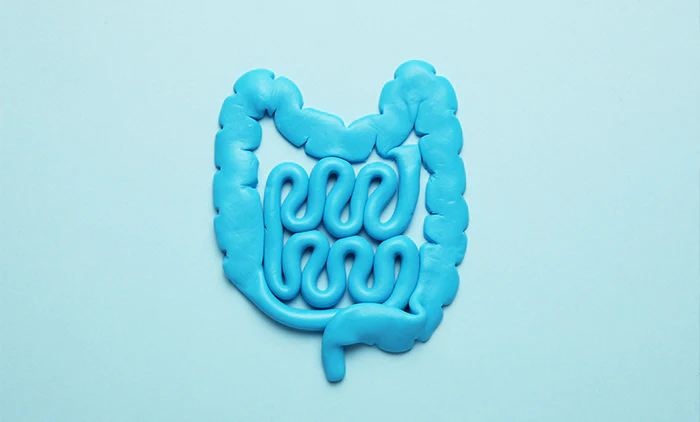Do you ever have trouble falling asleep at night?
Tossing and turning, unable to quiet your mind?
You're not alone. Millions of people suffer from sleep disorders such as insomnia, sleep apnea, and restless leg syndrome.
But did you know that what you eat can significantly impact the quality of your sleep?
It's true. Certain foods contain natural compounds that help regulate your sleep cycle and promote a more restful night's sleep.
Plenty of delicious and nutritious options exist, from warm milk to tart cherry juice. So if you're looking for a natural way to improve your sleep, look no further than your kitchen.
Sleep is super important and does affect every aspect of health. We’ve found 10 of the best foods and drinks which contain compounds that help control parts of the sleep cycle depending on your goal.
You may want to eat and drink foods that assist you with falling asleep and want to add items that encourage a lengthy, deep sleep.
This article will explore some of the best foods for a restful night's sleep and how they can help you catch those elusive Zzzs.
How does a lack of quality sleep affect you?
While you may feel the physical and mental effects of a lack of quality sleep, you may be unable to pinpoint what is happening to your body during this time. A lack of good-quality sleep can affect you in several ways.
Here’s a list of common effects a lack of quality sleep can have on you;
Impaired cognitive function
Sleep is essential for proper brain function, including memory, attention, and decision-making. Lack of quality sleep can impair these functions, leading to difficulty concentrating, memory problems, and decreased productivity.
Mood changes
Sleep plays a crucial role in regulating emotions. Lack of quality sleep can cause irritability, mood swings, and even depression.
Increased risk of accidents
Sleep deprivation can lead to daytime drowsiness and impaired reaction time, increasing the risk of accidents while driving or performing other activities that require alertness.
Weakened immune system
Sleep is important for the body to repair and regenerate. Lack of quality sleep can weaken the immune system, making you more susceptible to illnesses and infections.

Weight gain
Poor sleep can affect hormone levels, including those that regulate hunger and fullness. As a result, lack of quality sleep may increase appetite and lead to weight gain.
Increased risk of chronic diseases
Lack of quality sleep has been linked to an increased risk of chronic conditions, including diabetes, cardiovascular disease, and obesity.
Overall, getting quality sleep is crucial for maintaining physical and mental health. If you're having trouble sleeping, it's important to talk to a healthcare professional to address any underlying issues and develop a plan to improve your sleep habits.
Sleep quality and duration can exasperate and amplify conditions such as;
How to get quality sleep?
However, getting enough sleep can be a challenge for some.
Getting good sleep requires sufficient chemicals, amino acids, enzymes, nutrients, and hormones that work together to regulate the sleep cycle. These include:
Although many foods contain low levels of these sleep-promoting compounds, only some have high concentrations that could affect a person’s sleep cycle.
What are the best foods and drink for good sleep?
Taking both traditional knowledge and scientific research into account, as well as nutritional profiles, here are the best foods and drinks for sleep:
Warm milk
Warm milk contains tryptophan, an amino acid that helps produce serotonin and melatonin, hormones that promote sleep.
Chamomile tea
Chamomile tea has mild sedative properties and can help you relax and fall asleep faster.
Bananas
Bananas are a good source of potassium and magnesium, which can help your muscles relax and promote restful sleep.

Whole grains
Whole grains are rich in complex carbohydrates that can help increase the production of serotonin, which can help you sleep better.
Tart cherry juice
Tart cherry juice is a natural source of melatonin, which can help regulate your sleep-wake cycle.
Leafy greens
Leafy greens such as spinach, kale, and collard greens are rich in calcium, which can help your body produce melatonin.
Almonds
Almonds are a good source of magnesium, which can help relax your muscles and promote better sleep.

Turkey
Turkey is another food that contains tryptophan, which can help you feel sleepy and relaxed.
Kiwifruit
Research has shown that kiwi can help you improve your sleep. In a small study, people who consumed two kiwifruits 1 hour before bedtime for 4 weeks experienced improved total sleep time and efficiency. It also took them less time to fall asleep.
Kiwi contains many sleep-promoting compounds, including:
- Melatonin
- Anthocyanins
- Flavonoids
- Carotenoids
- Potassium
- Magnesium
- Folate
- Calcium
Fatty fish
Fatty fish may help improve sleep because they are a good source of vitamin D and omega-3 fatty acids, two nutrients that help regulate serotonin. Serotonin is largely responsible for establishing a fixed sleeping and waking cycle.
Fatty fish are typically also high in a few other sleep-promoting nutrients.
What determines good quality sleep?
Several factors can determine whether you have a good sleep or not. Here are some of the most important factors that can impact your sleep quality:
Sleep environment
A comfortable, quiet, and dark sleep environment is crucial for a good night's sleep. Your bedroom should be cool, well-ventilated, and free from distractions such as noise, light, and electronic devices.
Sleep duration
Getting enough sleep is important for your overall health and well-being. Adults typically need 7-9 hours of sleep per night, although this can vary depending on individual factors such as age, lifestyle, and health conditions.
Sleep hygiene
Good sleep hygiene can help you fall asleep faster and stay asleep longer. This includes establishing a regular sleep routine, avoiding stimulants such as caffeine and nicotine before bedtime, and limiting daytime naps.

Stress and anxiety
Stress and anxiety can make it difficult to fall asleep and stay asleep. Learning stress management techniques such as meditation, deep breathing, or yoga can help you relax and promote better sleep.
Health conditions
Certain health conditions, such as sleep apnea, restless leg syndrome, or chronic pain can interfere with sleep quality. It's important to seek medical attention if you have ongoing sleep problems.
Diet and exercise
Eating a healthy diet and getting regular exercise can help promote good sleep. Avoiding heavy, spicy, or fatty meals close to bedtime and staying active during the day can help regulate your sleep-wake cycle.
How much sleep do I need?
It may be hard to calculate the correct amount of sleep you need, as the truth is each individual's needs can vary and change. The amount of sleep you need depends on several factors, including age, lifestyle, health and individual needs. However, here is a general list of recommendations for sleep duration by age:
It's important to note that these are general guidelines, and you do not have to strictly follow these guidelines as they are not tailored to you as an individual.
How can I ensure I get good quality sleep?
So, apart from paying attention to what you eat, what else can you do to ensure that you get a good nights sleep?
Stick to a sleep schedule
Go to bed and wake up at the same time every day, even on weekends or days off. This helps regulate your body's sleep-wake cycle and can improve the quality of your sleep.
Create a relaxing bedtime routine
Develop a relaxing routine to help you wind down before bed. This can include taking a warm bath, reading a book, or practicing relaxation techniques such as deep breathing or meditation.
Create a sleep-conducive environment
Make sure your bedroom is quiet, dark, and cool. Use comfortable bedding and pillows, and remove any electronic devices that may cause distractions or disruptions.

Limit daytime naps
While napping can be beneficial, it's important to limit daytime naps to 30 minutes or less, and avoid napping too late in the day.
Avoid stimulating substances
Avoid caffeine, nicotine, and alcohol, especially in the hours leading up to bedtime. These substances can interfere with your sleep and prevent you from getting restful sleep.
Stay active during the day
Regular exercise can help improve your sleep quality, but try to avoid exercising too close to bedtime, as it may interfere with your ability to fall asleep.
Manage stress
Stress can interfere with your sleep, so try to manage stress through relaxation techniques or by engaging in activities you enjoy.
So, what are the best types of foods for good sleep?
Overall, your sleep is affected by several factors. The more you implement healthy food patterns, exercise, and ultimately a healthier lifestyle, the better your sleep will be.
Specifically in regards to foods you should be consuming, they include;
Nutritionists and health experts have recommended these foods as they can enhance your quality and duration of sleep. Complex carbohydrates (whole grains, fruits, and vegetables) can help promote good sleep by increasing the production of serotonin - a neurotransmitter that regulates sleep.
Foods that are rich in protein (lean meats, poultry, fish, beans, and lentils) can help promote good sleep by increasing the production of tryptophan. Tryptophan is an amino acid that is converted to serotonin.
Another essential mineral for healthy sleep is magnesium, which is found in foods such as spinach, almonds, pumpkin seeds, and black beans.
On the list of the best minerals for regulating the body’s electrolyte balance, we have potassium. Foods which provide a good source of potassium include bananas, sweet potatoes, avocados, and spinach.
Additionally, Calcium is a mineral that is important for healthy sleep, and foods such as dairy products, leafy greens, and fortified cereals are good sources of calcium.
Melatonin is a hormone that regulates the sleep-wake cycle, and certain foods such as tart cherries, walnuts, and oats are natural sources of melatonin.
If you plan to add these foods to your diet and you need a protein boost to achieve your goals, the PhenQ meal shake style="font-weight: 400;"> may just help you out.
The shake can replace a full meal, boost your energy and help you shed pounds naturally, if that is your goal.
Alternatively, the PhenQ PM supplement is a natural weight regulating formula that optimises all 3 stages of night-time fat-burning. If you’re trying to shed a few pounds, you can melt them while you sleep. PhenQ PM also helps to crush hunger cravings, and reboot your metabolism — all while you sleep.



